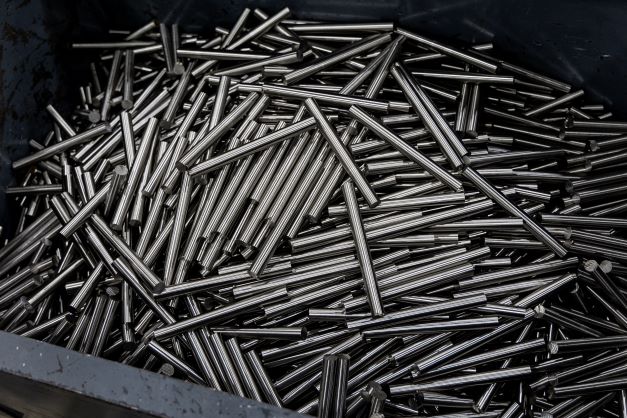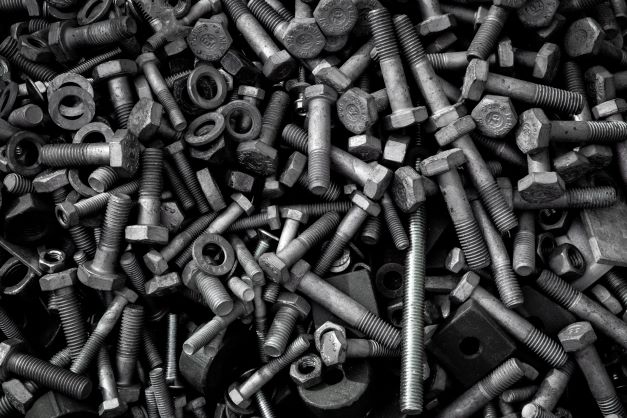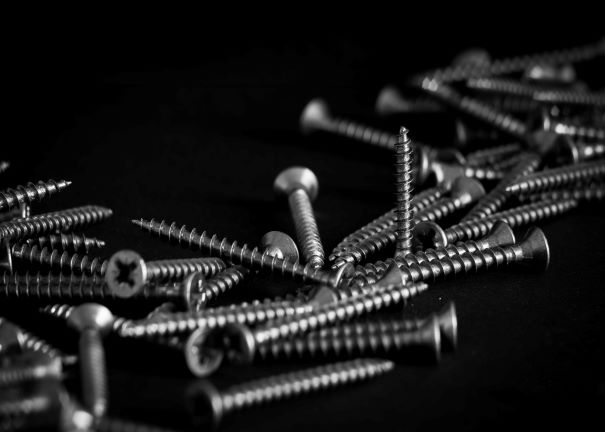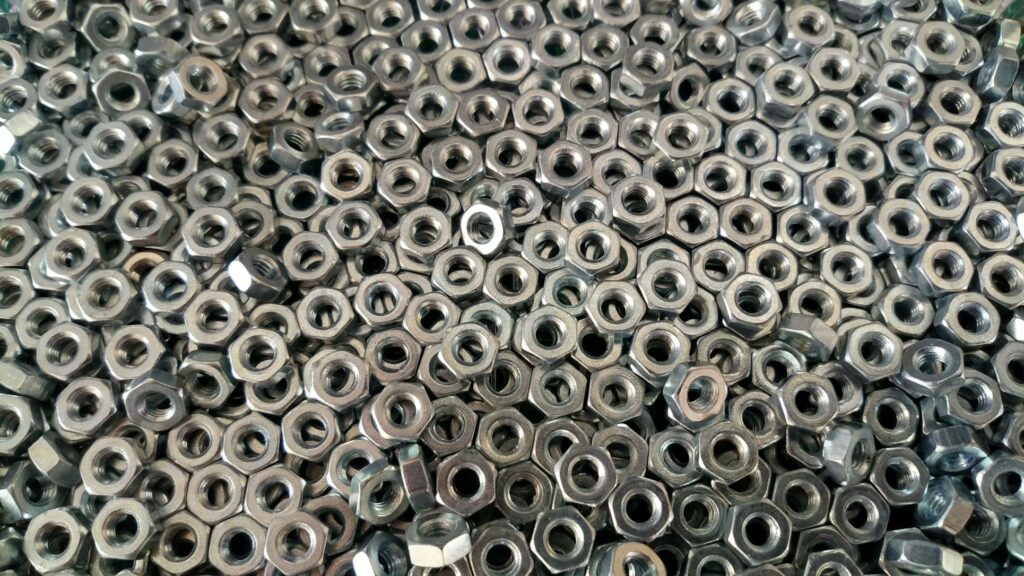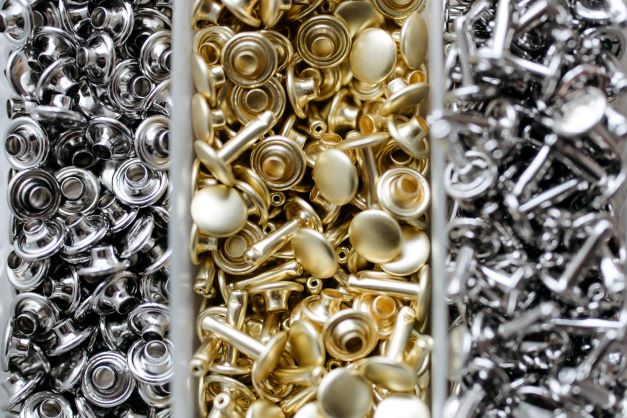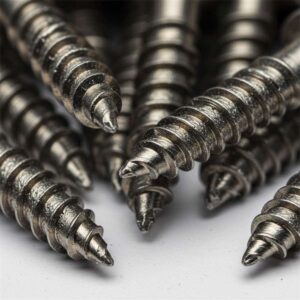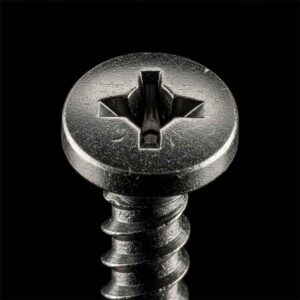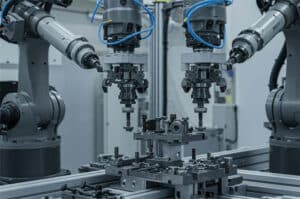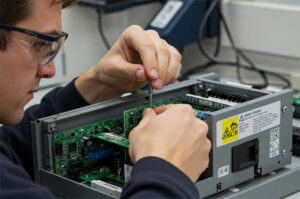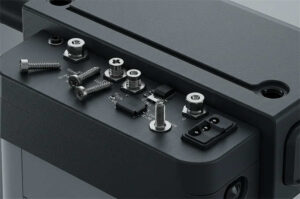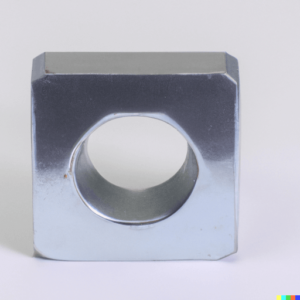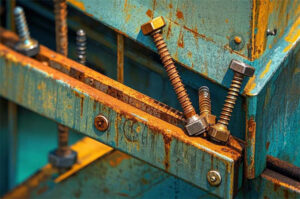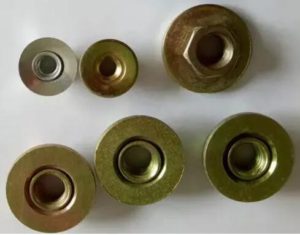What Are the Different Kinds of Fasteners?
The term fasteners have broad aspects and categories in its specialized abilities. It is a mechanical device engineered to provide permanent and non-permanent joints of materials. They are typically found in many products today and are used by large sectors to provide security in hold and safety of components.
The different uses and applications of fasteners have variations of kinds and types to precisely meet the required specification of use. The distinguished kinds are threaded fasteners (bolts, screws, and studs), nuts, washers, rivets, and other customized fastening solutions. The fasteners are categorized into two components such as permanent and non-permanent. Each kind is designed to have specialized qualities in effectivity to its purpose.
The General Category of Fasteners
Fasteners fall into two categories that help us determine the classifications of their types.
Non-permanent/Temporary
As the name suggests, fasteners that fall under this category are often applied to temporarily join the materials or hold them together for a significant reason. Fasteners of this type allow the user to remove the component without the possibility of permanent damage to materials. There are comprehensive lists of industries that require this type of fastener. This type of component includes bolts, screws, nuts, washers, and studs. Typically, they are installed in crucial fastening situations with necessary maintenance.
Permanent
Some areas of work require less to no modification for a long time. Hence, permanent and non-removable fasteners are made available for this situation. These fasteners are intended for single-use, lasting for a long time. Permanent fasteners are engineered to sustain critical situations. The commonly used types in permanent fastening are rivets, nails, and welds in the automotive and consumer electronics industries.
The Detailed Classifications of the Types of Fasteners
Threaded Fasteners
All fasteners that fall into this classification are identified with an external or internal thread that shares the intent to function in joining materials and holding components together.
Bolts
Bolts are generally considered a type of screw, yet they function efficiently in more critical applications. It possesses a much more efficient hold with the help of a nut; both materials tighten a firm grip when used together. This is because bolts consist of male threads, while nuts are female threaded that correspond to each other to match the purpose of their essential function.
Screws
The most commonly known type of fastener is a screw. Screws have various kinds and customizable attributes to meet the standard requirement in their application. Typically, they can be used as an individual component or with the aid of a locking device like nuts.
Studs
Stud is a fastener with a distinct feature of length and no head. Studs are designed to substitute a nut and bolt assembly during more critical work of large parts in structures or machines. They present a long shank with threaded ends for the insertion of nuts in tightening both sides.
Nuts
Usually used in bolted joints and with screws, nuts are circular or hexon-shaped with internal threads. The female thread on the nuts remarkably matches the threads of bolts. The two fasteners go together as partners in connecting materials.
Washers
Threaded fasteners can execute a more reliable job with the help of washers. They are thin and circular plates with a middle hole for the insertion of bolts and nuts. Washers are great tools for enhancing bolted joints’ capacities; they distribute the load and force absorption around the surrounding surface. They make the fastening more durable to tension and vibration while lessening the failure of permanent deformation of materials or having loose joints.
Rivets
Rivets provide a permanent fastening in materials with several configurations during installation. The two ends of rivets are called the Head and tail, the Head takes the punching of a tool on a pre-drilled hole, and while making this force, the tail becomes upset to deform in expanding form. This method creates the capability of rivets to support shear loads (perpendicular load to the axis of the shaft).
The Variety of Subtypes And Their Definition
Studs
- Fully Threaded Studs
Studs are fully threaded over the body for the mating nuts to engage completely. This stud type is a long threaded bar that allows the adjustable parts (nuts) to move in the distance along the bar, generating a large force.
- Tap-end Studs
This type of stud has unequal thread engagement in length. One end of the rod has a shorter thread called the tap end, while the other longer end is where the nut is engaged.
- Double-end Studs
Double-end studs refer to studs with similar threads on both ends and a shank in the middle. The threads of each side are intended to accept nuts in tightening.
- Full-bodied Studs
A type of stud with an equal shank of the threaded part of the entire bar. Full-bodied studs are also called cut threads.
- Undercut Studs
They are also referred to as rolled thread which possesses more robust fastening due to the rolled-up metal into its body. The undercut studs are specifically designed to provide better axial stress distribution and withstand exposure that causes fatigue to materials.
Washers
- Spring washer
Spring washer is the type of Washer with the characteristic of a ring cut by spring steel and a slightly raised end from up and down. They are placed below a nut or bolt to prevent the nut from loosening by putting the received pressure against the nut during vibration. The following are several forms of spring washers;
- Belleville or Conical Washer
- Dome Spring Washer
- Wave Spring Washer
- Finger Spring Washer
- Crescent Spring Washer
- Lock washer
From the name itself, lock washers are applied to lock nuts and bolts, preventing them from loosening. They are generally used in applications that require protection from vibration and corrosion, like trucks, cars, etc.
- Split Lock Washer
- External Tooth Washer
- Internal Tooth Washer
- Plain washer
This Washer is generally a standard Washer that is a plain or flat disc. They are inserted below a nut or a bolt to distribute the force uniformly to the entire surface.
- Torque Washer
- Flat Washer
- Fender Washer
- Finishing or Countersunk Washer
- Shoulder Washer
- C-Washer
Rivets
- Solid Rivets
It consists of only a shaft and a head buckled by a pneumatic hammer or rivet gun. Solid rivets are mostly made of aluminum to allow the process of cold-forming, making the material reliable. The commonly known head types of solid rivets are;
- Button head
- Truss (brazier) head
- Flathead
- Countersunk (Flush) head
- Pan (universal) Head
- Blind Rivets
Blind rivets got their name because they can be used from a complex workpiece with only one accessible side. They provide a similar feature in installation and uniformity of clamping force to solid rivets.
- Pull mandrel
- Threaded stem
- Drive pin
- Tubular Rivets
This type of rivet features a hollow hole at the tip, similar to solid rivets. Tubular rivets are also known as Semi-tubular rivets. They are sometimes preferred for pivot points with specific installation tools.
- Compression tubular rivets
- Semi-tubular rivets
- Full tubular rivets
- Metal piercing rivets
Metal or self-piercing rivets are similar to semi-tubular rivets, except they don’t require a pre-drilled or punched hole. They contain a partial hole at the tip of their body and are cold-forged to a semi-tubular shape. Metal piercing rivets fully pierce the top sheet material yet partially pierce the bottom sheet.
- Split Rivets
Bolts, Nuts, and Screws
These three kinds of fasteners have numerous variations of types with their classified qualities and function. They are considered the most general and standard fasteners with diverse purposes and applications in use. To know the outstanding features of these fasteners, you can read the list of articles below.
Link 1 What are the types of nuts, bolts, and screws?
Link 2 What are Nut and Bolt Fasteners?
Link 3 What are the types of bolt fasteners?
Link 4 How is a screw made?
The Parts of Bolts and Their Function
Head
Refers to the upper and top part of a bolt that serves as the driving surface of tools for installation. A correct tool enables the tightening and loosening of bolts with the unique grip force it holds in its Head. Most bolts are wrench-type heads and are handled with a wrench tool during the application.
Shank
Shank comes right after the Head. They are easily recognized for their smooth quality or as the unthreaded part of a bolt. This feature prevents radial movement around the joint. Without a shank, there’s a greater possibility of loose bolts. Other workpieces can generate vibrations while some become exposed to them within their environment.
Grip length
It is located where the shank is; they accommodate the parts of materials in the assembly. Grip length is expected to have an equal thickness to the combined diameter of the joining objects.
Threading
Threads on bolts are classified as male threads, which match the internal female threads of nuts. This feature allows the driving force of bolts into materials. The threading of bolts consists of the final and tip part that comes under the shank.
Thread length
This is the measurement of threads in length and is known as the part that accommodates the nuts.
Nominal length
Nominal length is the combined measurement of thread length and grip length.
The Parts of Screws and Their Function
Drive
Drive is simply found at the Head of the screw. This feature is similar to the bolts wherein its different head types of shape and form can be driven with a powerful tool. The device allows tightening and loosening of the material. The most commonly used type of Head drive-on screws are cross-head, square, start, slotted, and hex slotted.
Head
The Head is the visible external part of the screws and where the head drive is located. The Head is the top part of any fastener that comes in variations.
Shank
Shanks of screws are the same features as a bolt. It is located between the Head and the threads, yet they vary in type and are usually not as smooth as the shank of bolts.
Thread
It is another feature that possesses the attribute of a bolt. Often they are considered as the ridge which wraps around the cylinder and forms a helix. Threads on screws differ from bolts as they are designed to fit the elements of a typical screw application.
Tip
The tip is simply the last and bottom part of the screws. They are the sharp end of the fastener that primarily meets the surface of installation.
The Types of Nuts
Nuts are perplexed tools/devices with a single purpose to be inserted through bolts and fasteners for tightening and increasing the reliability and strength of the conjunction. Its mechanical types include;
- Acorn nut
- Barrel Nut
- Furniture Cross Dowel Barrel Nut
- Cage nut
- Clip-on nut
- Coupling nut
- Flange nut
- Self-aligning nut
- Insert nut
- Knurled nut
- Split nut
- Square nut
- T-slot nut
What are the usual methods of fastener production?
Cold-forging
Cold-forging or cold-forming is a method of processing metal materials near room temperature, squeezing the dies until the components assume their shape. The deforming of the workpiece below its recrystallization point allows the material to be malleable and more robust in resistance. Cold-forming is advantageous for fastener suppliers because of the product’s high-speed manufacturing and lower finishing requirement. However, it can only produce certain types and shapes because some materials are limited to the method.
Hot-forging
Hot-forging is the standard method of producing fasteners in high temperatures to achieve a malleable state of materials. The process of hot-forging is done through stamp heating metal before undergoing in the press to be squeezed between dies and tool.
Modifications of sizes, shapes, and thread forms are easily molded in hot-forging, but when compared to cold-forming, it is more intricate and expensive.
Machining
Machining is another method of processing fasteners that includes turning, milling, and drilling a material using a machine tool to achieve precise shapes or non-standard fasteners in small quantities. It is ideal for fastener suppliers to create custom-designed fasteners for efficiency under miscellaneous categories, including shaping, planning, boring, broaching, and sawing.
Thread forming
Thread forming is distinguished from thread rolling because of the difference in the manufacturing process; thread rolling is forming external threads in fasteners. Thread forming involves installing internal threads on screws and bolts for the products to ease the difficulty in application. Generally, the cylindrical or spiral form on the surface of fasteners is defined by its ability to tap and performance in application. Internal threads are standard on nuts and tapped holes, while external threads are those in bolts, studs, or screws. Most fastener suppliers never miss this process to produce nuts and bolts.
Surface treatment
In metallurgy, surface or heat treatments are essential for increasing physical properties such as the strength and flexibility of fasteners. It’s usually referred to as coatings or finishings by fastener suppliers due to its broad techniques in the quality desired for the product. Some benefits of surface treatments are; corrosion resistance, less friction, wear and tear prevention, durability, lowered cost in maintenance, and more. Coatings vary in three categories of the architectural, industrial, and particular purpose for the primary function of protecting the product from the environment. At the same time, types of surface treatments, according to most fastener suppliers, include Electroplating, Electroless Plating, Anodic Oxidation, Hot Dipping, Vacuum Plating, Painting, and Thermal Spraying.
Source: How are fasteners made?
The Industries That Needs A Fastener Solution
- Automotive (engines, shafts, rotors)
- Aerospace (aircraft, spacecraft, helicopters, and other related parts)
- Infrastructures
- Buildings
- Bridges
- Roadways
- Railways
- Tunnels
- Construction Industry
- Waste Management
- Energy plants (petrochemical, solar, photovoltaic, wind, oil, and gas)
- Industrial manufacturing (factories of toys, machine parts, computer parts, etc.)
Kinds of Corrosion that Fasteners Can Encounter
Fasteners are handy in many areas of their function. They can sustain the productivity of a specific connection and joints of materials. With their complex qualities that naturally require a range of standards to determine their effectivity, they are in danger of vast kinds of corrosion and failure.
Failure of components depends on situational factors that can be prevented or predetermined in tests. Sometimes this occurs when incorrect elements are used in fasteners and projects or the correct type of fastener is treated undesirably.
The types of corrosion in fasteners are determined into two categories; a direct chemical attack or electrochemical corrosion.
A direct chemical attack happens when the type of elements in a fastener (steel, alloy, brass, etc.) contradicts the present chemicals in the surroundings of the materials it is applied. This situation is expected and typically occurs in harsh environments like the plant and oil & gas industries. To prevent such corrosion incidents, a few steps will be best to choose the suitable fastener material and proper coatings that can withstand critical issues.
Electrochemical corrosion covers a wide selection of corrosion embodied by small electrical current that flows through and damages the fasteners. This process of corrosion results from the contact of metals with the presence of atmospheric oxygen and electrolyte. The common types of electrochemical corrosion are;
- Galvanic Corrosion – occurs in the incident of contact of two different metal materials and results in damage of pitting or erosion
- Stress Corrosion Cracking – this happens when the tensile stress of materials overfills the tension of a fastener, causing failing cracking and permanent deformation. This type of corrosion is more likely to happen in many instances of the application.
- Crevice corrosion – occurs in crevices of a fastener that isn’t well maintained, resulting in dirt and moisture accumulating and eventually creating corrosion to the fastener. This type of corrosion is regarded to be less likely to be harmful than the others.
- Uniform corrosion – is a result of improper finishing or coating of a fastener. A mismatched element of materials in fasteners and the application environment creates corrosion that causes the build-up of rust and difficulty in removing or replacing the temporary component in the surface.
- Pitting corrosion – is caused by microscopic holes that form through the body of a fastener.
Where to Find a Reliable Fastener Supplier?
Thousands of fastener establishments have flourished due to the high demand in niche markets. There is always difficulty in choosing the right company that can supply and provides for your needs, and this situation is a common problem faced by many. To find a reliable supplier of fasteners that can accommodate the specifications of features and types, we have compiled the most renowned and trusted manufacturers and distributors from around the world.
Top 10 Fastener Suppliers and Manufacturers in China
Top 10 Fastener Suppliers and Manufacturers in the UK
Top 10 Fastener Suppliers and Manufacturers in the USA
Top 10 Fastener Suppliers and Manufacturers in Brazil
Top 10 Fastener Companies in UAE
Top 10 Fastener Companies in Saudi Arabia
Top 10 Fastener Companies in Russia
Top 10 Fastener Companies in Chile
Tips >> Don’t Be Scammed! How Can You Find Reliable Fastener Suppliers and Manufacturers in China?
Is Nut and Bolt Manufacturing Business Profitable?
To answer this in a short context, yes, nuts and bolts manufacturing is a cost-effective business. They propose an excellent evaluation in the market due to the high demand for quality and quantity in the increasing developments and need for mechanical devices.
Nuts and bolts are partners and can’t be functional without the other. This goes within the concept of an enormous scope of profit because nuts and bolts have the reliability to one another; clients will likely purchase them together. Although numerous competitors and well-established companies can be hard to challenge, there are various available ways and strategies to imply. And more factor contributing to the possibility of a significant profit is that this type of business is considered to sustain fundamental components of many situations and workpieces.
This article discusses the platforms and provides detailed information about starting a fastener company. Where Can I Get a Low-Price Nut and Bolt From China? What Do I Need to Start a Fastener Manufacturing Company?
Get technical advice and detailed information on fasteners from a prominent fastener manufacturer in China. Prince Fastener Manufacturing Co., Ltd is ready for your inquiries. Contact us now.
